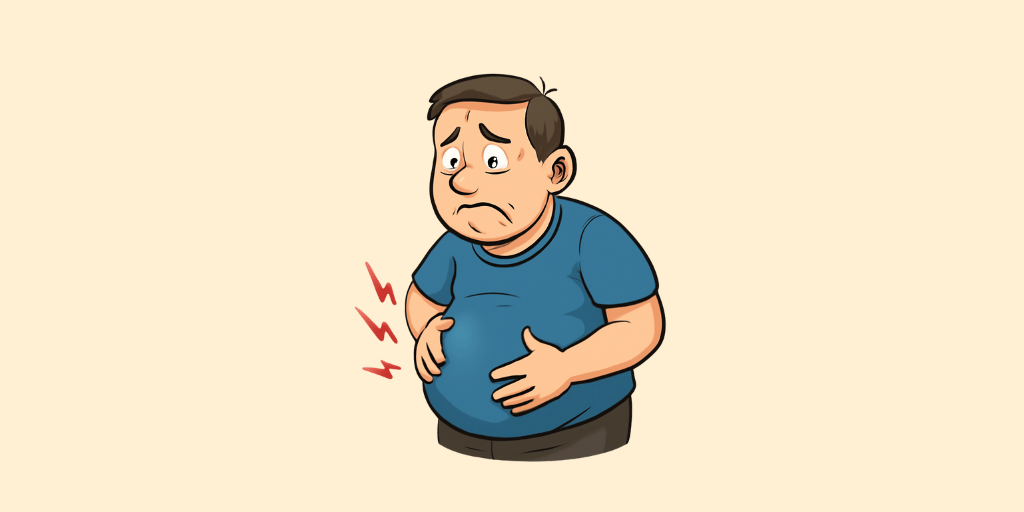Ayurvedic Name: Anaha
Description:
Anaha refers to abdominal distension resulting from aggravated Vata and Kapha, which leads to bloating, discomfort, and difficulty in passing stool or gas. It is often associated with constipation, indigestion, or improper food combinations. The obstruction of Apana Vayu (the downward-moving wind) results in stagnation within the intestines, creating a feeling of fullness and heaviness. Ayurvedic management includes digestive herbs like Hing (asafoetida), Ajwain, Triphala, and castor oil to relieve gas, regulate bowel movements, and restore the natural flow of Vata.
Signs & Symptoms:
- Sandhi sula (Joint Pain): Deep, throbbing, and migratory pain, worsened in cold or damp conditions.
- Sandhisotha (Joint Swelling): Inflammatory swelling with tenderness, often appearing symmetrically in both hands or knees.
- Stambha (Stiffness): Prolonged morning stiffness lasting more than an hour, making movement difficult.
- Sparsa Asahyata (Tenderness to Touch): Extreme sensitivity in affected joints due to Āma accumulation.
- Jvara (Fever): Mild to moderate fever due to the autoimmune inflammatory response.
- Gaurava (Heaviness in the Body): Feeling of sluggishness due to toxin buildup in the system.
- Agnimandya (Digestive Impairment): Weak digestion, bloating, and irregular appetite due to metabolic dysfunction.
- Kshrama (Fatigue): Persistent tiredness even with minimal exertion.
Diagnosis:
Abdominal Ultrasound
Risk Factors:
Anaha, or abdominal distention, is primarily caused by an imbalance in the digestive system, particularly due to weakened digestive fire (Mandagni) or an aggravated Vata dosha. Risk factors include improper diet, such as consuming heavy, hard-to-digest foods or gas-producing items like beans, cabbage, and carbonated drinks, which disrupt digestion. Irregular eating habits, overeating, or eating late can also disturb the digestive process, leading to bloating. A sedentary lifestyle, poor hydration, and emotional stress further contribute to this condition by slowing down digestion or triggering gas accumulation. Additionally, aging weakens digestive fire, making one more prone to Anaha, while certain medications can disrupt gut health. To prevent Anaha, it’s crucial to maintain a balanced diet, manage stress, and incorporate regular physical activity to support healthy digestion.
Complications:
- Bloating (Anaha): Accumulation of undigested food and gas in the abdomen, leading to a feeling of fullness and discomfort.
- Acid Reflux (Amlapitta): Backward flow of stomach acids into the esophagus, causing heartburn and irritation.
- Digestive Weakness (Agni Mandya): Impaired digestive fire leading to inefficient digestion and further bloating.
- Gas Retention (Vata Dushti): Imbalance of Vata dosha causing excessive gas in the stomach and intestines.
Epidemeology:
The epidemiology of Anaha (Bloating) indicates that it is commonly observed in individuals with digestive disorders, especially those with weak digestive fire (Agni). It is prevalent in populations that consume heavy, greasy, or improperly combined foods, and it often affects people experiencing chronic stress or anxiety. Anaha is also linked to conditions like Irritable Bowel Syndrome (IBS) and can be exacerbated by a sedentary lifestyle.

